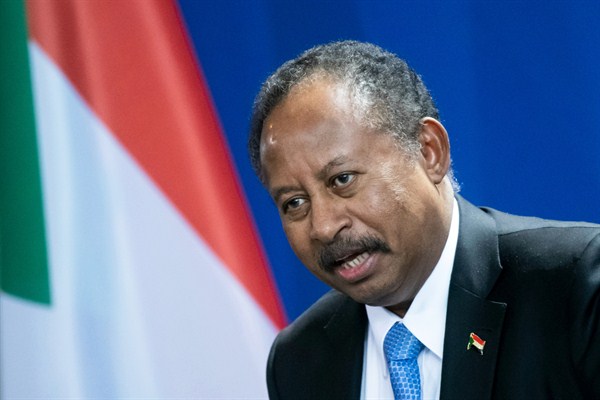When Sudan’s military brass removed the country’s longtime strongman, President Omar al-Bashir, 10 months ago, skepticism about their intentions was the order of the day. The demonstrators on the streets of Khartoum were the most skeptical, and their massive pro-democracy protests that had forced the military’s hand did not stop. Four months later, and against all odds, the protesters achieved another impressive victory: a power-sharing agreement with the military, establishing a transitional ruling council. Yet even then, not everyone was convinced that a country accused of committing serial genocide under Bashir was on its way to fully rejoining the community of nations as a democracy committed to the protection of human rights.
But now, as a group of international backers known as the Friends of Sudan is preparing for a major donors’ conference in the coming months, the new Sudan is making a strong case to prove that it is deeply committed not just to progress but to a profound transformation. In a series of decisions announced in recent days, from Bashir’s fate to plans for transitional justice and payments to victims of terrorism, the transitional government looks determined to show it is moving in the right direction.
It may just persuade the skeptics who have had good reason to worry. When Bashir was deposed last April, the generals who immediately assumed power in the Transitional Military Council looked like they planned on keeping it. In June, the Rapid Support Forces, or RSF—the successors to the infamous Janjaweed militia that was accused of carrying out genocide to suppress an insurgency in Sudan’s Darfur region in 2003—tried to crush the ongoing protests in Khartoum, killing more than 100 demonstrators. The RSF is loyal to Gen. Mohammed Hamdan Daqlou, known as Hemeti, who remains one of Sudan’s most powerful figures.

